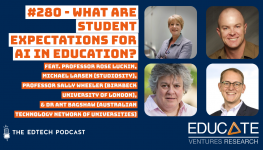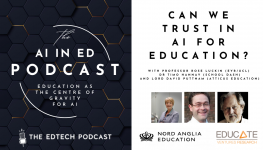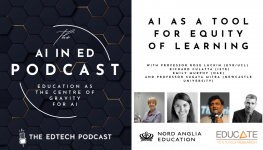#101 – Imagine (a world of assessment without tests)
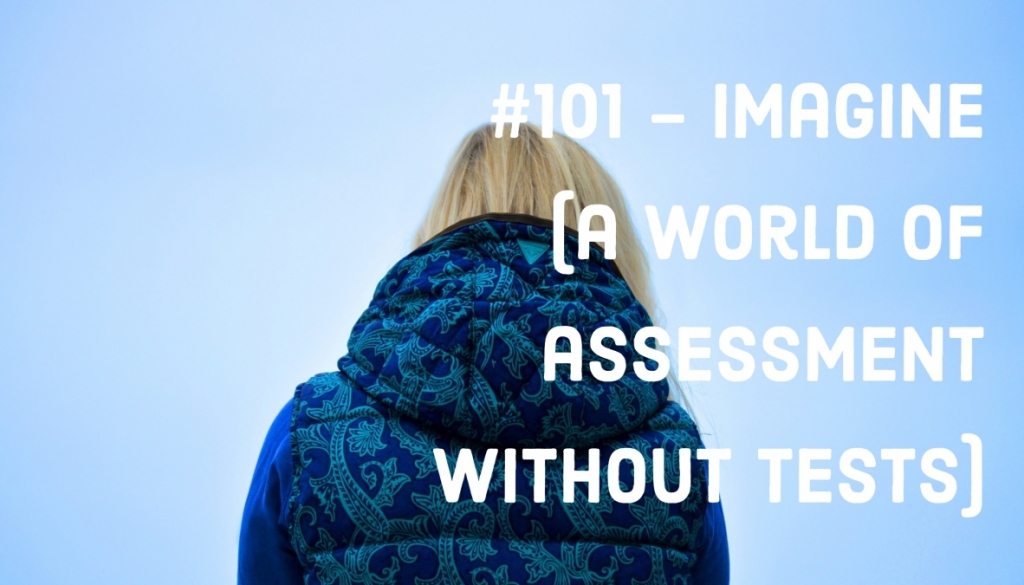
Podcast: Play in new window | Download
Subscribe on iTunes, Spotify, Stitcher, TuneIn
Welcome to this episode of the Pearson Future Tech for Education Series on The Edtech Podcast. My name is Sophie Bailey and each week, in this series, I’ll be exploring the challenges and opportunities of future tech for education with contributors from across industry, research and academia.
What’s in this episode?
How do we get beyond the tick-box or bubble filling exercise of exams and tests, whilst also measuring ‘progress’? We delve into ideas around ‘invisible assessment’ and question who benefits from‘traditional’ and re-imagined forms of assessment, including games-based assessment. Can ‘tests’ be fun and should they be? How do we measure collaboration?
People

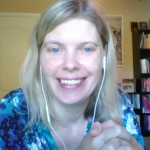


- Dr. Alina von Davier is the Vice President of ACTNext, as well as an Adjunct Professor at Fordham University. At ACTNext, Dr. von Davier and her team of experts are responsible for developing prototypes of research-based solutions and creating a research agenda to support the next generation of learning and assessment systems. Dr. von Davier is a pioneer in the development and application of computational psychometrics and conducts research on blending machine learning algorithms with psychometric theory.
Prof. Rose Luckin, Professor of Learner Centred Design, IOE – Culture, Communication & Media, UCL Institute of Education

Prof Rose Luckin has been developing and writing about the Learning Sciences, Educational technology and Artificial Intelligence in Education (AIEd) for over 20 years. Her research explores how to increase participation by teachers and learners in the design and use of technologies. In addition to over 50 peer-reviewed articles and two edited volumes, Prof. Luckin is the author of Re-Designing Learning Contexts (Routledge, 2010), and lead author of the influential Decoding Learning report (Nesta, 2012). Rose is a member of the Welsh Assembly’s Successful Digital Futures group and was previously a member of the board of BECTA (the British Educational Communications and Technology Agency) and founder and chair of their Research Advisory Group. Rose is a member of the EPSRC college of reviewers and has advised the research councils of various countries on the design and use of educational technologies. Her research applies participatory methods to the development and evaluation of technology for learning. This work is interdisciplinary and encompasses education, psychology, artificial intelligence and HCI.
Quotes from this episode
“We can think about: How can we create activities that tell us what students know and can do? In a more authentic way or a more fun way.”
“Colin is a piece of software that consists of some artificially intelligent programming that is designed to analyze data gathered as students learn in a particular way.”
“The very first step in these efforts is to establish the validity of the in-game measures. Are we in fact measuring the things we want to measure?”
References
Tell us your story
We’d love to hear about innovative technology or approaches you are developing or using in education. Leave your stories in the comments below. Alternately, record a quick free voicemail via speakpipe for inclusion in the next episode. Finally, you can post your thoughts or follow-on links via twitter @podcastedtech @kristendicerbo via The Edtech Podcast Facebook page.
The Pearson Future Tech for Education Series is produced by The Edtech Podcast and supported by Pearson Education. If you’re interested in the themes that come out of the series, check out more ideas in the “open series” here.

